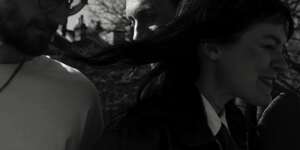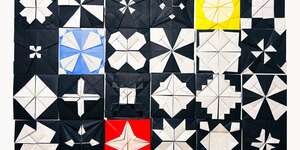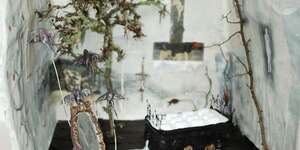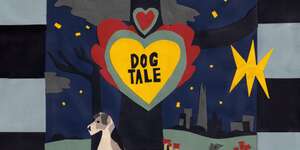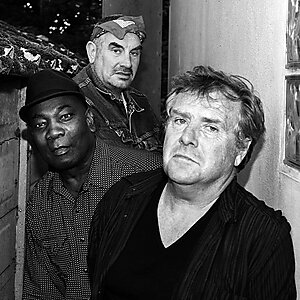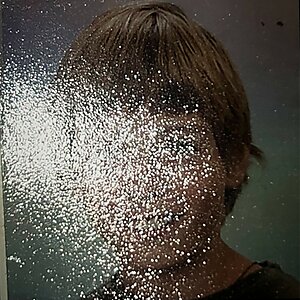Robber Robber
Robber Robber
country: Vermont, USA
genre: Rock
styles: Post-Punk, Kraut Rock, Post-Rock

Wild Guess debut
 LP
LP
Reviews and Comments
All movement – and consequently, a lot of art – is a product of tension and release. In 2017, when multi-instrumentalists Nina Cates and Zack James decided to begin writing songs together, it was an exercise to see whether they could collaborate and anyone would be interested in anything they came up with. Now, Robber Robber’s debut album, Wild Guess, feels more like an exercise in tension and release than an indie record. For all of its nods to its post-punk predecessors and the eclectic Burlington, VT music scene that fed into it, the album feels more like an attempt to translate imagery into sound, communicating all the shades of light and dark you could visualize – and it’s better for that reason.
Everything is driven by sheer curiosity and loose, if any, creative parameters, the band says. A person’s twenties is guaranteed to be a tumultuous time in their life anyway, regardless of who they are or what they do, but the members of Robber Robber found themselves in a world that’s maybe never been more chaotic or difficult to move through. It’s a chaos that’s evident in what they create, even if it’s only the obstacle they’re reacting to. In even their most polarizing musical moments, you get the sense that these are gut reactions being expressed, that truth is the grist of the overflow.
Recorded with Benny Yurco (Grace Potter) and Urian Hackney (The Armed, Rough Francis) at Little Jamaica Recordings in Burlington with band members Will Krulak and Carney Hemler in tow, Cates and James (who also co-produced the album) have honed the most fully-realized version of Robber Robber to date, capturing the tangible group dynamic they’ve cultivated on stage. Much of that stage presence hinges on those same principles – flow and strain, the transfer or withholding of energy – opening with a track like “Seven Houses” and watching the crowd lean forward to catch the moment where the barrage of instrumentation will let up. On Wild Guess, that song is preceded by the almost stilted, unsettling “Letter From the Other Side of the Operation,” making its full-on attack of an introductory verse even more impactful in its recorded form.
Elsewhere, that sense of release is playful, like with the more accessible, almost poppy relief of “Dial Tone.” That track in particular marks one of the few points where Cates’ vocals are clearly decipherable, letting a crack form in the towering barrier of sound the band spends much of the album’s runtime building up. Of course, something else like closer “Machine Wall” lives up to its name in fortifying that barrier again, grinding on in an emphatic, beautiful finishing statement – deeply felt even as it tries desperately to throw you off its back, appearing more human as it rolls to a halt.
And maybe that’s the key here: these are impressionistic sketches, mimicking the visual material the songwriting might pull information from. Take the back-and-forth ringing of the guitars in “Backup Plan,” eventually clouded by fuzzier layers that seem to war with each other in a test of endurance – this kind of gradually overwhelming choice relies so much on gut reaction, on adjusting your ear to understand when it suddenly jerks you sideways.
Even if you’re not listening to Robber Robber play from a stage, Wild Guess still begs you to lean in and wait for permission to relax, to overwhelm you before it subsides in glorious, delightfully eclectic fashion. It sounds like human interaction even if you’re alone in the room – all unpredictable movement before it lets you out of its mechanical grip. The thing is, by the time those final notes of “Machine Wall” play out, you won’t want it to let you go.
- Elise Soutar
latest releases
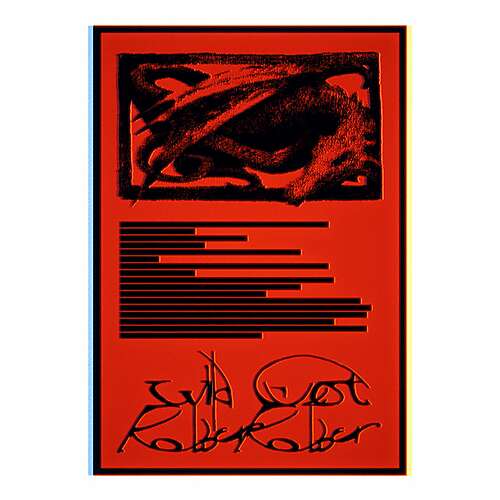 EP
EP
Wild Guest
out on April 11, 2025
via Rose Garden
 Single
Single
How We Ball - GIFT Version
out on April 01, 2025
via Rose Garden
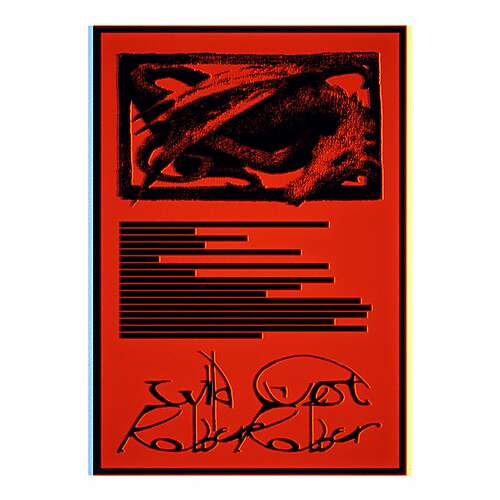 Single
Single
Backup Plan - This Is Lorelei Version
out on February 20, 2025
via Rose Garden
 Single
Single
How We Ball
out on July 22, 2024
 Single
Single
Dial Tone
out on June 20, 2024
 Single
Single
Backup Plan
out on May 20, 2024

